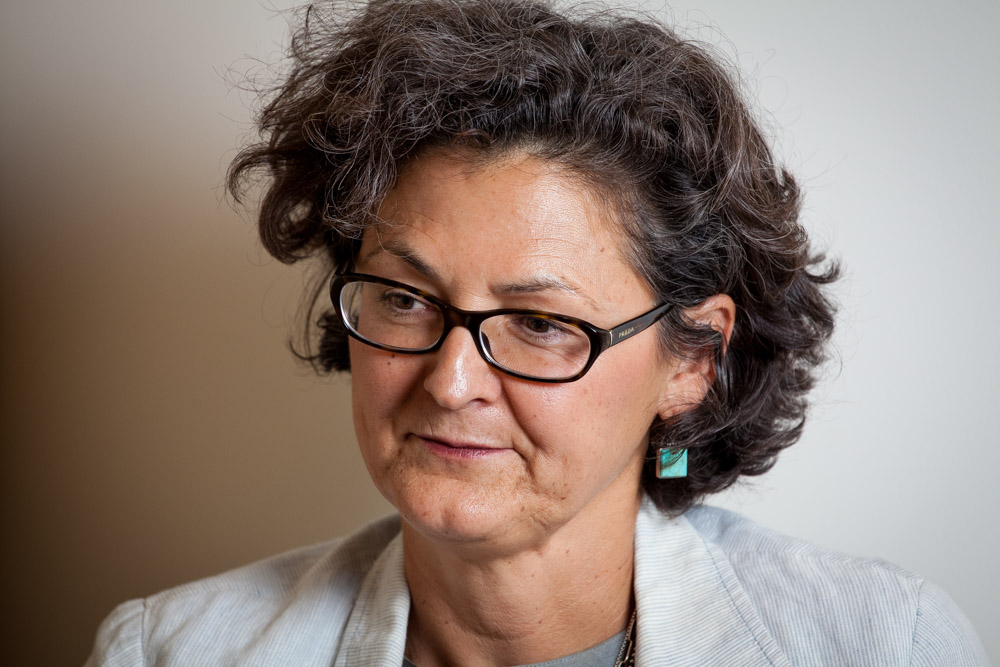
Julie Cart is a reporter at CALmatters, where she covers climate change and other environmental issues. She previously was a reporter at the Los Angeles Times, where she won a Pulitzer Prize for a series on wildfires in America. Before joining a Zócalo/UCLA panel discussion on fracking’s environmental effects—“Is Fracking Good for California?”—she talked in the Zócalo green room about meeting her husband at the Australian Open, ponytails on men, and how water and land use run the show in California.
You went to college on a sports scholarship. What did you play?
I was a discus thrower. But I also threw fits and tantrums.
You’ve reported multiple times on the Olympics. Do you have a favorite Games?
I have a least favorite, which is Atlanta [summer 1996]. There were many organizational problems. It was difficult. I was hot.
What do you think of man buns?
Why not, I say? My view on male hair is that you can have a ponytail if you have a lot of hair, but it’s inappropriate if your hair is thinning.
What inspired you to cover environmental issues?
I used to be a national correspondent, covering everything from politics to crime. One thing I noticed about the West is that water and land use pretty much run the show. Those decisions have implications for pretty much everything.
You won a Pulitzer Prize in 2009 for explanatory reporting. What was the coolest thing about that?
The coolest thing is that journalists think it’s a journalism prize, but it’s an arts and letters prize. You go to the reception—it’s very low-key—and you see these great poets and playwrights, and you think, “Journalists are puny joes in here compared to everyone.”
Jon Stewart or Stephen Colbert?
Jon Stewart.
Do you have any pets?
My husband and I have three rescue dogs that we pretty much treat as children.
What do you like least about reporting?
Writing. Editing. I like the actual reporting, though. That’s fun.
You’re married to an Australian. Where did you two meet?
We met in Melbourne, across a crowded pressroom at the Australian Open.
Is Twitter good or bad for journalism?
I was one of the people who had to be dragged into Twitter. But I like it because I use it as a news feed. For me, it’s useful. I don’t tweet what I had for lunch.



